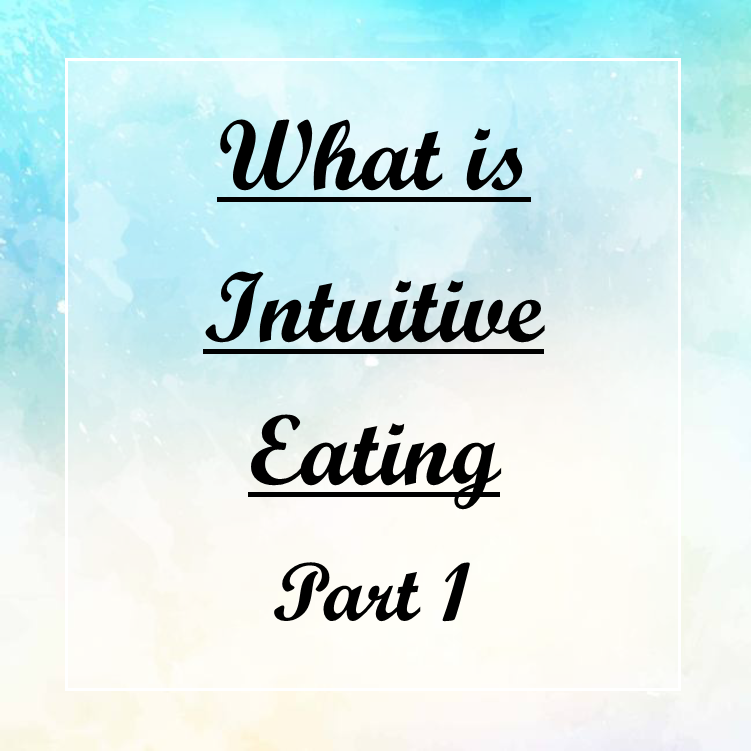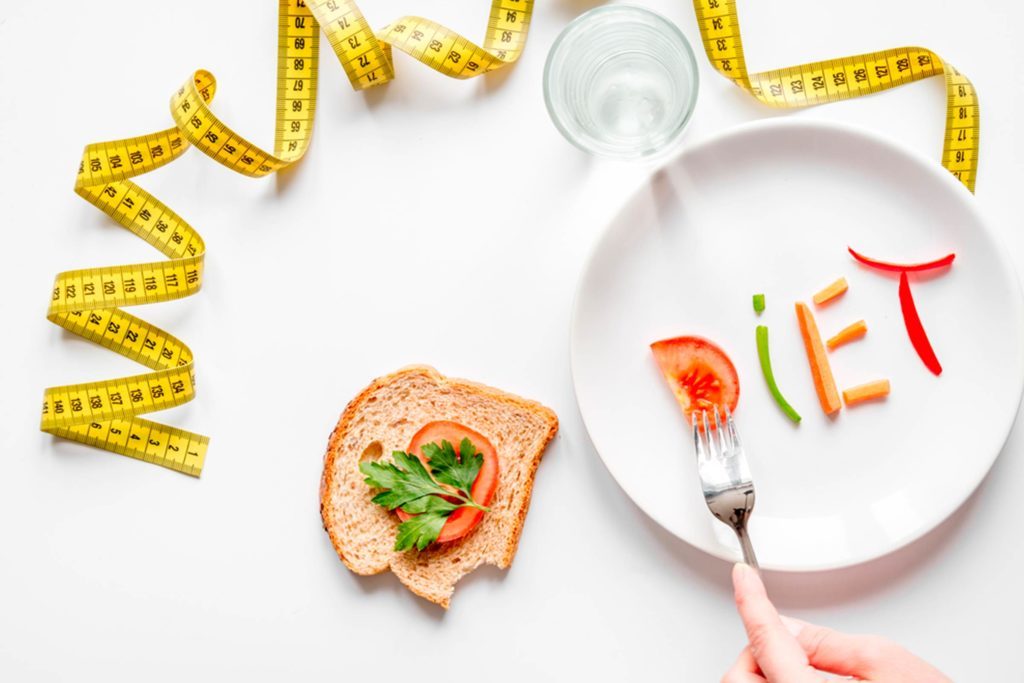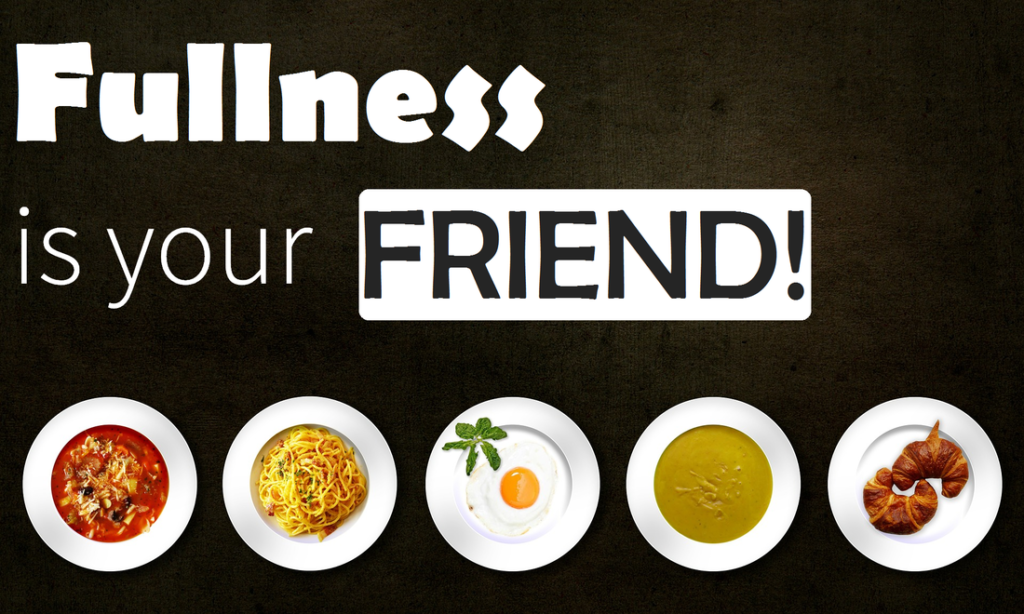Five Principles of Intuitive Eating (Part 1)
 Intuitive Eating is a pattern of living and eating that promotes the belief that we are innately endowed with natural signals of hunger and fullness as well as appetite controls that guide our food choices and how we relate to food. Intuitive Eating supports the idea that we know best what we need and want; not a prescribed diet, specifically weight loss diets. We know that diets don’t work. Ninety-five percent of individuals who follow conventional weight loss diets defined by diets that prescribe extreme calorie restriction, elimination of whole food groups and/or emphasis on a single food group, gain their weight back. But we are so quick to hop on the next great diet that promises permanent weight loss. The yo-yoing of weight loss and weight gain wreaks havoc on metabolism making it even more difficult to lose weight again. Sadly the culture of thinness and subsequent body shaming promotes these kind of restrictive diets, self-destructive behaviors resulting in disordered relationships with food.
Intuitive Eating is a pattern of living and eating that promotes the belief that we are innately endowed with natural signals of hunger and fullness as well as appetite controls that guide our food choices and how we relate to food. Intuitive Eating supports the idea that we know best what we need and want; not a prescribed diet, specifically weight loss diets. We know that diets don’t work. Ninety-five percent of individuals who follow conventional weight loss diets defined by diets that prescribe extreme calorie restriction, elimination of whole food groups and/or emphasis on a single food group, gain their weight back. But we are so quick to hop on the next great diet that promises permanent weight loss. The yo-yoing of weight loss and weight gain wreaks havoc on metabolism making it even more difficult to lose weight again. Sadly the culture of thinness and subsequent body shaming promotes these kind of restrictive diets, self-destructive behaviors resulting in disordered relationships with food.
What’s the answer? It’s all intuitive, meaning we have the answers inside of us, but we just need to understand ourselves better and allow the natural signals within us to help guide us. To learn more about Intuitive Eating click HERE. Purchase the book and workbook by clicking on the links at the bottom of this post.
Benefits of Intuitive Eating
Be patient with yourself as you start to make these changes. The research is clear–following these core principles will help you have:
- Higher self-esteem
- Better body image
- More satisfaction with life
- Optimism and well-being
- Proactive coping skills
- Lower body mass indexes
- Higher HDL cholesterol levels
- Lower Triglyceride levels
- Lower rates of emotional eating
- Lower rates of disordered eating
Five Principles of Intuitive Eating
This post will outline the first five of ten core principles that define Intuitive Eating. In an upcoming post I’ll write about the last five principles and then I’ll begin a series of posts about each principle in detail, so stay tuned. Each principle is an opportunity to evaluate our own personal belief system, likely influenced by our upbringing, our culture, our work environments and our psycho-social view of ourselves. Incorporating each principle takes time because it likely means erasing years of belief about how you view food and your body. It redefines the why, the what, the when and the how much you “should” eat.

1. Reject the Diet Mentality Throw out the diet books and magazine articles that offer you false hope of losing weight quickly, easily, and permanently. Get angry at the lies that have led you to feel as if you were a failure every time a new diet stopped working and you gained back all of the weight. If you allow even one small hope to linger that a new and better diet might be lurking around the corner, it will prevent you from being free to rediscover Intuitive Eating.

2. Honor Your Hunger Keep your body biologically fed with adequate energy and carbohydrates. Otherwise you can trigger a primal drive to overeat. Once you reach the moment of excessive hunger, all intentions of moderate, conscious eating are fleeting and irrelevant. Learning to honor this first biological signal sets the stage for re-building trust with yourself and food.
 3. Make Peace with Food Call a truce, stop the food fight! Give yourself unconditional permission to eat. If you tell yourself that you can’t or shouldn’t have a particular food, it can lead to intense feelings of deprivation that build into uncontrollable cravings and, often, bingeing When you finally “give-in” to your forbidden food, eating will be experienced with such intensity, it usually results in Last Supper overeating, and overwhelming guilt. All foods can fit into a healthful diet. Avoid labeling foods “good” or “bad”.
3. Make Peace with Food Call a truce, stop the food fight! Give yourself unconditional permission to eat. If you tell yourself that you can’t or shouldn’t have a particular food, it can lead to intense feelings of deprivation that build into uncontrollable cravings and, often, bingeing When you finally “give-in” to your forbidden food, eating will be experienced with such intensity, it usually results in Last Supper overeating, and overwhelming guilt. All foods can fit into a healthful diet. Avoid labeling foods “good” or “bad”.
 4. Challenge the Food Police .Scream a loud “NO” to thoughts in your head that declare you’re “good” for eating minimal calories or “bad” because you ate a piece of chocolate cake. The Food Police monitor the unreasonable rules that dieting has created . The police station is housed deep in your psyche, and its loud speaker shouts negative barbs, hopeless phrases, and guilt-provoking indictments. Chasing the Food Police away is a critical step in returning to Intuitive Eating.
4. Challenge the Food Police .Scream a loud “NO” to thoughts in your head that declare you’re “good” for eating minimal calories or “bad” because you ate a piece of chocolate cake. The Food Police monitor the unreasonable rules that dieting has created . The police station is housed deep in your psyche, and its loud speaker shouts negative barbs, hopeless phrases, and guilt-provoking indictments. Chasing the Food Police away is a critical step in returning to Intuitive Eating.
 5. Respect Your Fullness Listen for the body signals that tell you that you are no longer hungry. Observe the signs that show that you’re comfortably full. Pause in the middle of a meal or food and ask yourself how the food tastes, and what is your current fullness level?
5. Respect Your Fullness Listen for the body signals that tell you that you are no longer hungry. Observe the signs that show that you’re comfortably full. Pause in the middle of a meal or food and ask yourself how the food tastes, and what is your current fullness level?
Links to purchase the book and workbook here:




Anonymous
Excited to learn more! Thank you
Karen
I’m interested in knowing what you think of this article. Are you an intuitive eater?